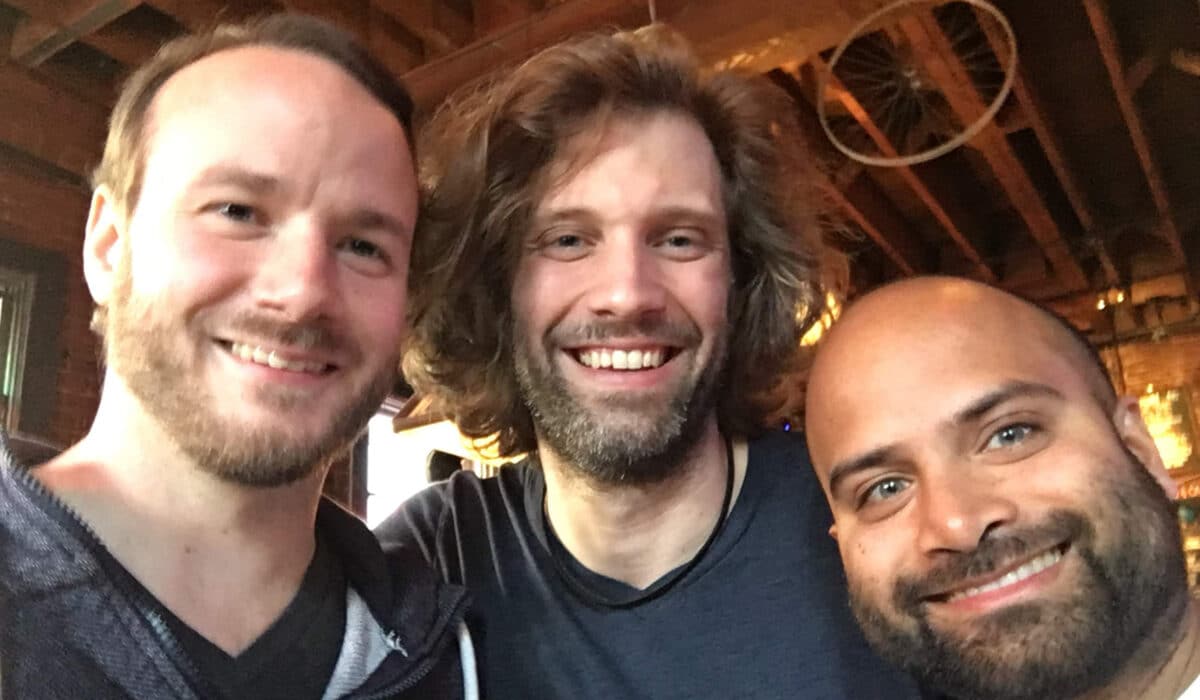When founder Ravi Kurani sold Sutro, he didn’t even have a fully developed product.
What he had was a patent for a microfluidic chip, “a novel way to measure water chemistry that we had figured out how to commercialize,” he explained.
Plus a prototype of the Sutro Smart Pool Monitor, a device that monitors the pool water chemicals and makes recommendations. Or, as he called it on Practical Ecommerce, “the Fitbit for your pool.”
He also had $150,000 in pre-sales from a Kickstarter campaign, and $1.5 million in venture capital he’d raised.
That was enough for a buyer to show some serious interest.
The idea of Sutro: a water sensor device for pool owners
In the early 2010s, Kurani worked as an associate at a small venture capital fund in India. Millions of Indians lack access to safe drinking water, and Kurani took note of the abundant number of deals relating to clean water that crossed his desk, he explained on The Growth and Scaling Podcast with Todd Westra.
The use cases ranged vastly, and he noticed water quality sensors were either cheap and unreliable or expensive and built for large-scale facilities. “There was nothing really in the middle,” he told Westra.
Initially, Kurani aimed to build a water sensor to sell to the Indian government. “Stupidest thing a startup can do,” he said, citing slow government processes. “Don’t try to sell to the government.”
Kurani pivoted his model. He returned to Southern California, where his father ran a chain of pool and spa stores. His idea was basically this: “Let’s take my dad’s pool store and shove it inside a robot and put it on an app and sell them to wealthier pool owners first, take that capital and then do the drinking water stuff later.”
That’s when, in 2015, he founded Sutro and began working on the Sutro Smart Pool Monitor.
An opportunity to sell his Sutro Smart Pool Monitor patent
Around 2018, Kurani, who had three employees, was in talks with Sani Marc, a Canadian manufacturing company that sells a range of commercial cleaning products and equipment. The talks centered on distributing the pool monitor in Canada once developed.
Kurani mentioned that Sutro was raising Series A funding, and they just had a large deal fall through. Although the pool monitor was not yet ready to hit the market — thus far, they had done $150,000 in pre-sales through a Kickstarter campaign — Sani Marc was interested in the microfluidic chip patent.
Although he hadn’t seriously considered a sale so far, “the stars sort of aligned,” he told us.
He shared on Westra’s podcast: “It’s a cost-benefit analysis. Do you get to see your idea continue through or do you want to spend all day long fundraising?”
Because the pool monitor was only a prototype, Sani Marc was less interested in analyzing the typical metrics of a business acquisition, like users and revenue.
“It’s more about the IP and what the future looks like,” Kurani told us. “How close are you to commercialization, and what does launch look like?”
Kurani said selling the business, which took about six months, felt like a rollercoaster ride. “It was exciting and rewarding, but also pretty intense with all the negotiations and making sure our vision stayed on track,” he said.
In fact, he said that was one of the most challenging parts of the sale: ensuring the alignment of Sutro’s values and vision with Sani Marc.
In June 2018, the 6-figure sale was finalized. But since the business had raised $1.5 million in funding, that meant the business sold for less than it raised. Typically in deals like this, investors get paid first, which can minimize the payout for founders. But Kurani could not disclose details of his deal.
One of the benefits for him was joining the Sani Marc team, where he became the president of Sutro to run its day-to-day operations. Kurani was still there five years later.
Staying on post-sale — and getting Sutro to market
Kurani spent his first couple of years with the team in China, learning the ins and outs of manufacturing the chip, he told Westra.
Then, during the pandemic, Sutro’s pool monitor went to market.
“The pandemic was great for us because more people were at home,” Kurani shared on Practical Ecommerce. “Many built pools and spent time in their backyards, so our direct-to-consumer sales have been solid over the last two years.”
Kurani says Sani Marc has been a great partner, providing “good perspective, autonomy — but also bringing in big boy finance to help hit profitability numbers.”
While Kurani is focused on pools, he still plans to scale to different industries, including drinking water, through the Sani Marc verticals, he told us — likely around 2025. For now, he dives deep on the larger implications of water on his podcast, LiquidAssets.cc.


